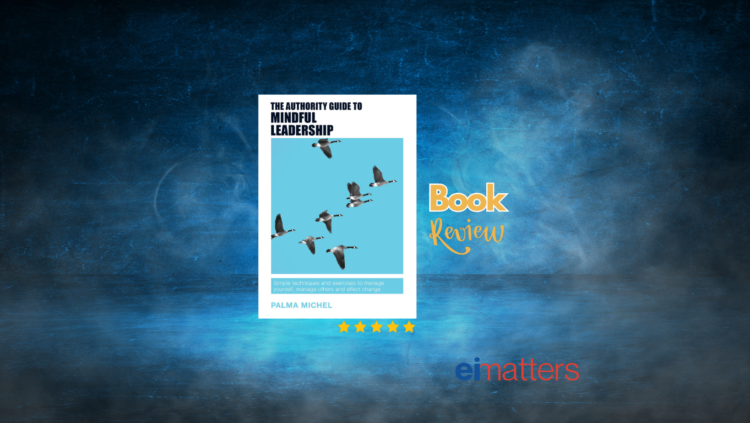Last Updated on August 23, 2023 by Editors Desk
“The Authority Guide to Mindful Leadership” unveils how merging mindfulness with leadership cultivates self-awareness, adept decision-making, and interpersonal finesse. Packed with pragmatic exercises, this book empowers leaders to master self-management, inspire teams, and drive change effectively. It navigates modern leadership’s complexities, fostering empathy and resilience. Through real-world examples, it underscores inclusivity, communication, and innovation within organizations. Whether refining skills or beginning anew, this guide propels individuals on a transformative journey to mindful leadership, prioritizing holistic growth for themselves and their teams.
About Author

Contents of the Book
“The Authority Guide to Mindful Leadership: Simple techniques and exercises to manage yourself, manage others and effect change” likely discusses the concept of mindful leadership and offers guidance on how to incorporate mindfulness practices into leadership roles. Here are some topics that might be covered in the book:
- Introduction to Mindful Leadership: The book might begin by explaining what mindful leadership is and why it’s important in today’s fast-paced and complex business world.
- Understanding Mindfulness: The book could delve into the principles of mindfulness, exploring how being present, non-judgmental, and aware can positively impact leadership effectiveness.
- Self-Management: Mindful leadership often starts with self-awareness and self-regulation. The book might provide techniques and exercises to help leaders manage their emotions, reduce stress, and make better decisions.
- Managing Others: Effective leadership involves understanding and empathizing with others. The book could offer strategies for active listening, fostering open communication, and building strong relationships with team members.
- Change Management: Mindful leadership can help navigate organizational change smoothly. The book might discuss how mindfulness techniques can assist leaders in leading change initiatives and dealing with resistance.
- Conflict Resolution: Mindful leaders are equipped to handle conflicts with empathy and a calm demeanor. The book could provide insights into resolving conflicts while maintaining a positive work environment.
- Building a Mindful Culture: The book might explore how leaders can create a culture of mindfulness within their teams or organizations, promoting employee well-being and productivity.
- Practical Exercises: To reinforce concepts, the book might include various mindfulness exercises, meditation techniques, and reflective practices that leaders can implement in their daily routines.
- Case Studies: Real-life examples and case studies might be used to illustrate how mindful leadership has made a difference in various industries and contexts.
- Measuring Impact: The book could discuss ways to measure the impact of mindful leadership on individual and organizational performance, emphasizing the benefits of adopting these practices.
In what ways do you think this book could benefit you?

A book like “The Authority Guide to Mindful Leadership” could offer several potential benefits to both you and others, especially if you’re in a leadership position or aspiring to be a leader. Here are some ways in which the book could be beneficial:
- Enhanced Leadership Skills: The book might provide practical techniques and exercises that can help you develop strong leadership skills. These skills could include effective communication, empathy, decision-making, and conflict resolution.
- Stress Reduction: Mindful leadership often emphasizes self-awareness and stress management. By learning how to incorporate mindfulness practices, you could reduce stress and improve your overall well-being, which in turn could positively impact your leadership effectiveness.
- Better Decision-Making: Mindfulness can enhance your ability to make thoughtful and rational decisions. The book might provide insights into how to approach decision-making with a clear mind, considering multiple perspectives and potential outcomes.
- Improved Relationships: Mindful leaders tend to build stronger relationships with their team members and colleagues. The book could offer guidance on active listening, understanding diverse viewpoints, and fostering a positive work environment.
- Change Management: If you’re dealing with organizational changes, the book might provide strategies for leading change with a calm and adaptable mindset. This could result in smoother transitions and reduced resistance from team members.
- Conflict Resolution: Mindful leadership can help you approach conflicts with empathy and understanding. The book might offer techniques for addressing conflicts in a constructive way, leading to better resolutions and maintaining team harmony.
- Cultivating a Positive Culture: By implementing mindful leadership practices, you could contribute to creating a more positive and inclusive organizational culture. This could lead to increased employee satisfaction, engagement, and retention.
- Personal Growth: The book might encourage personal growth and self-reflection. Through mindfulness exercises and self-awareness practices, you might discover new insights about yourself and your leadership style.
- Increased Focus and Productivity: Mindfulness techniques can improve your ability to focus and manage distractions. This could lead to increased productivity and efficiency in your leadership role.
- Long-Term Success: Mindful leadership is often associated with sustainable success. By focusing on both short-term goals and long-term vision, you could contribute to the lasting success of your team and organization.
- Inspiration: Reading about real-life examples and case studies of mindful leadership can be inspiring and motivating. It might encourage you to adopt new approaches and try innovative techniques in your leadership journey.
Remember that the benefits you gain from the book will depend on your willingness to apply the concepts and techniques it presents. If you’re open to incorporating mindful practices into your leadership style, you could see positive changes in your approach, interactions, and outcomes as a leader.
Summary
“The Authority Guide to Mindful Leadership” is a practical guide designed for individuals in leadership roles or those aspiring to become effective leaders. The book introduces the concept of mindful leadership, emphasizing the integration of mindfulness practices into leadership strategies. It covers various aspects, from self-management and interpersonal relationships to managing organizational change.
By incorporating mindfulness techniques, readers can enhance their decision-making, reduce stress, and foster better communication. The book provides actionable exercises, real-world case studies, and insights into building a culture of mindfulness. Overall, the book aims to empower leaders with the tools to lead with self-awareness, empathy, and a positive impact on their teams and organizations.



